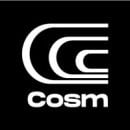Sonali Son began her career as a data scientist in 2007, a time when data practitioners still had to prove themselves to the tech industry, which questioned the value in marrying statistics and software development. Son faced an uphill battle as a woman of color having to justify the emerging field of data science to skeptical colleagues.
Melinda Orms entered the tech industry after spending a decade attending college part-time. While she immediately found the work engaging, she began questioning the value of her skills and contributions as compared to those of her highly educated teammates.
Son and Orms were both right where they belonged, and yet they didn’t necessarily feel that way. The natural self-doubt they felt stepping into a new job was intensified by the industry they entered, one that’s known for a lack of gender diversity and for being mostly white. Imposter syndrome had struck, but it didn’t strike either woman down.
Son’s resume includes stops at Amazon and Microsoft, and she is currently a senior manager of software engineering at Snap. Orms has spent more than two decades at Cosm and was a software engineer before moving to product management. Both recently shared their experiences with imposter syndrome with Built In Los Angeles along with the strategies that have helped keep it at bay as they grew their careers.
Data scientists and machine learning engineers are incredibly sought after today, but there was a time when the value of mixing statistics and mathematics with software development was called into question. Sonali Son, a senior manager of software engineering at Snap, experienced this firsthand as one of the earliest entrants into the field of data, and said it was one of her first professional encounters with imposter syndrome.
Son told Built In Los Angeles how she beat imposter syndrome in the past, along with the techniques she uses today when self-doubt begins to creep in.
How have you experienced imposter syndrome in your career?
I have been a woman in engineering for nearly 15 years working primarily as a machine learning or data scientist in adtech and cloud computing. When I was in school — even up to graduate school — these careers didn’t exist. In fact, I went to school for applied economics and statistics and intended to study development economics as part of my PhD. Because of my undergrad, I had a programming background and was part of the first cohort of professionals in a very new and evolving field. So, not only did I feel like the odd one out due to gender and race, I was an economist with a CS degree in a room of software developers working on data center connectivity!
I found there were times when I felt I needed to justify my role, since most folks have a great baseline understanding of statistics. However, projects involving forecasting, predictions and machine learning found their way onto my plate, and I was soon making presentations in boardrooms with senior executives, CEOs and other C-suite members of large companies because of the unique value I brought. The anxiety of having to explain oneself quickly disappeared as I realized that my skills spoke for themself.
When self-doubt transforms into anxiety, feelings of marginalization or not deserving my success, I turn to my manager and peers for feedback.”
How did you deal with your imposter syndrome? Was there a particular situation, quote, idea or person who helped change your perspective?
Unsurprisingly, imposter syndrome tends to rise in my mind when I feel, for some reason, like I don’t belong. Sometimes that’s based on visual cues, but the majority of the time it’s based on assumptions I have made about myself and others. I am always surprised by how “traditional” pathways in tech are diverse and unexpected. In reality, our industry is based on unique intersections of skills that have yet to be formalized because we are working at the forefront of innovation. The innovative spirit is the common element that brings many of us together. It continues to be helpful to meet people and get to know each other’s stories on a personal, deeper level.
What advice would you give to other professional women who are dealing with imposter syndrome?
Self-doubt is natural, especially when we put ourselves up for new and exciting challenges. When self-doubt transforms into anxiety, feelings of marginalization or not deserving my success, I turn to my manager and peers for feedback. Sometimes these feelings arise due to isolation, being buried in work or the routine high-stress situation. Taking a step back and getting specific feedback can help direct that energy to specific areas of growth. Additionally it can help you realize that you belong and are doing great.
For me, leaning on my peers for friendship and support is critical. A community of peers at work helps one maintain perspective, especially a community related to your personal background. Create a board of directors composed of people in your life whom you trust and use them as a sounding board. In turn, they will help reinforce the principles most important to you and provide objective feedback on how to handle different situations in a way that leads to growth. These are the folks who will provide not only mentorship but also a balanced perspective on where you thrive and areas of opportunity.
The tech industry likes to paint itself as an industry that breaks with convention and is open to outsiders, but in reality many companies are dominated by young men and place a high value on higher education. Melinda Orms said that this led her, a woman from a working class background who didn’t immediately go to college after high school, to feel imposter syndrome when she first broke into the industry.
Orms learned to quiet her doubt by recognizing unhealthy patterns of thought, and in doing so has built a career spanning more than 20 years at Cosm where she is currently a product manager.
How have you experienced imposter syndrome in your career?
I’ve been working with engineering teams for more than 20 years. I got my first job as a software engineer at 34 while I was finishing up my last semester of college with evening classes and on maternity leave from a full-time job. As a part-time student, it had taken me 10 years to get my bachelor’s degree. I started at my local community college and paid for my own education, semester by semester. That first job as a software engineer entailed more interesting and exciting work than I had ever imagined myself doing, and it set me up for the rest of my career. I’m now a product manager at Cosm.
Since my first engineering role, I have spent a lot of time on teams made up of incredibly smart, highly educated people, whereas I come from a working class background. Imposter syndrome has shown up intermittently as a judgmental voice that challenges whether I have earned my place. It asks, “Who are you to make this decision?” It questions, “Who are you to offer a solution to this problem?” And it makes me doubt myself by wondering, “Do you even belong here?” Even after two decades this voice can still show up, although it has softened significantly over the years.
When imposter thoughts arise, take the opportunity to reflect on where they come from and explore how they may not align with your worldview.”
How did you deal with your imposter syndrome? Was there a particular situation, quote, idea or person who helped change your perspective?
One thing that really helped me minimize these uncomfortable feelings was learning more about the cognitive distortions that can feed into imposter syndrome. These are unhealthy patterns of thinking, such as minimizing achievements, perfectionism or engaging in self-criticism in an effort to drive personal progress. There are many common patterns seen among the broader population and they are well studied in psychology. When I was able to recognize these patterns as inherently erroneous, my mindset shifted in two important ways.
First, I was able to accept this issue as a natural occurrence that’s part of our shared humanity. It helped to know that imposter syndrome isn’t just a personal issue; we all struggle with feelings of self-doubt, have fears of failure and make mistakes. Secondly, I was able to broaden my perspective and take a more inquisitive look at what I was experiencing. This allowed me to see the imposter feelings as an opportunity for more rational internal discourse. In this way, I was able to trace some of the roots of these thoughts and logically discredit them.
What advice would you give to other professional women who are dealing with imposter syndrome?
Let go of the belief that anything in this world is perfect. Accept imperfection in yourself and others with compassion, which is much easier said than done. This work starts with yourself, and many of us are hardest on ourselves. View this as a regular practice, and remember that whatever we practice gets easier. Familiarize yourself with any patterns of thinking that contribute to the problem. When imposter thoughts arise, take the opportunity to reflect on where they come from and explore how they may not align with your worldview.
It can also be very helpful to find a workplace that values participation, diversity and collaboration. Inhabiting an environment where all voices are recognized and invited to be seated at the table can help you feel a greater appreciation of your own voice. Challenge yourself to be an active participant in any conversation and recognize that every time you do, it demonstrates and promotes inclusivity to others. This can be a very powerful motivator.







